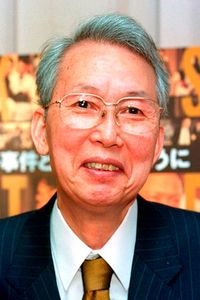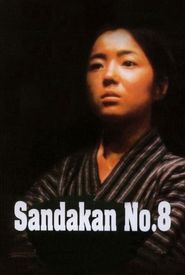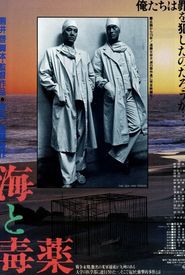Kei Kumai, a celebrated and accomplished Japanese film director, made his grand entrance into the world on June 1, 1930, in the picturesque town of Azumino, nestled within the boundaries of Nagano prefecture. Prior to embarking on his illustrious career as a film director, Kumai pursued academic endeavors in the realm of literature at Shinshu University, where he honed his skills and laid the foundation for his future triumphs.
In the year 1965, a pivotal moment in the professional trajectory of a renowned filmmaker, Kumai, unfolded as his inaugural cinematic endeavour, Nihon rettō, garnered him the esteemed recognition of the Directors Guild of Japan New Directors Award, a testament to his nascent talent and a significant milestone in his journey as a director.
This notable achievement was swiftly followed by the release of his 1972 film, Shinobu Kawa, which made its world premiere at the 8th Moscow International Film Festival, a prestigious platform that showcased his work to a global audience, further solidifying his reputation as a visionary filmmaker.
Kumai's 1973 cinematic masterpiece, Rise, Fair Sun, garnered widespread international recognition, with its entry into the 24th Berlin International Film Festival serving as a testament to its enduring impact.
However, it was Kumai's 1984 film, Sandakan No. 8, that would ultimately solidify his reputation as a masterful storyteller, weaving a powerful drama that tackled the sensitive and emotionally charged topic of a woman forced into prostitution in Borneo prior to the outbreak of World War II.
This poignant and thought-provoking film received widespread critical acclaim, with its nuanced exploration of a complex and controversial subject matter earning Kumai widespread recognition and acclaim within the film industry.
Kumai's cinematic masterpieces, boasting a thought-provoking narrative, garnered widespread acclaim, culminating in a nomination for the esteemed Best Foreign Language Film award at the 48th Academy Awards, thereby cementing his reputation as a venerated figure within the realm of Japanese cinema.
Throughout his illustrious and storied career, Kumai remained steadfast in his commitment to artistic expression, consistently challenging the status quo and exploring complex, multifaceted themes and issues through his films, thereby leaving an indelible mark on the industry, his influence still palpable to this day.
























